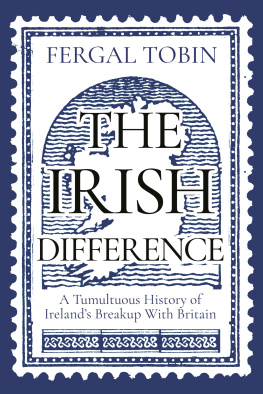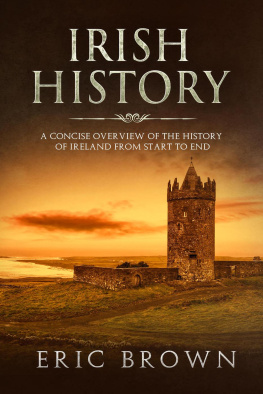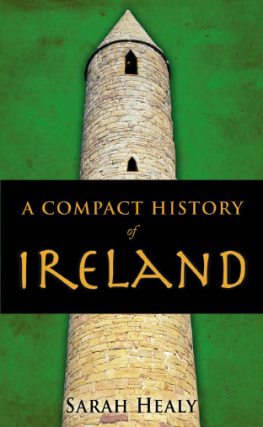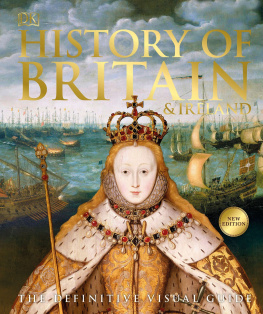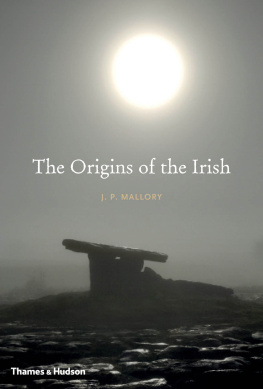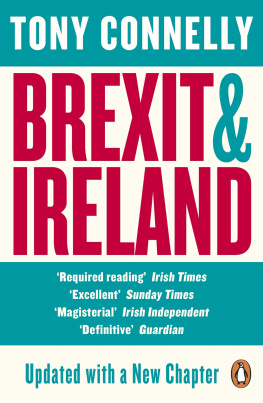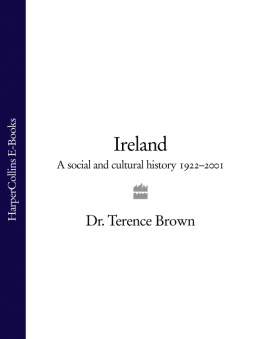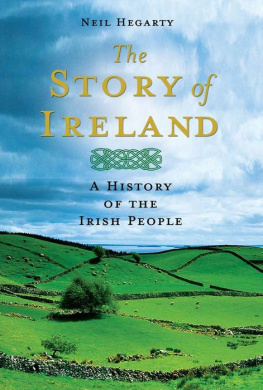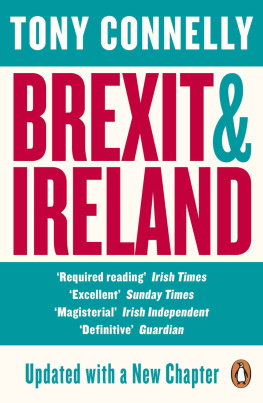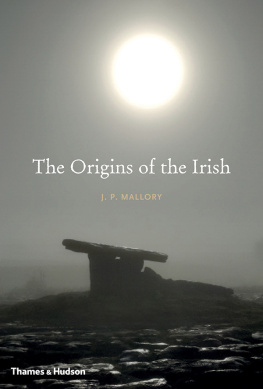CONCLUSION

STILL THE STONE IN YOUR SHOE
S O, NATIONALIST IRELAND is not British. It asserted this reality in the most decisive way in the few years following the conscription crisis. Sinn Fin, under the leadership of amon de Valera, pushed the old Irish Party to one side in the general election of 1918; it then declined to attend Westminster, instead setting up its own parliament in Dublin, Dil ireann. There followed a short but nasty Anglo-Irish war, followed by a peace treaty, followed in turn by a short civil war which the supporters of the treaty the new Irish government won. In the meantime, the island had been partitioned. The six north-eastern counties about two-thirds of the province of Ulster became Northern Ireland, constitutionally a part of the United Kingdom. The rest of the island gradually mutated into what is now the Republic of Ireland.
Then came the forty-odd years of the big sleep. England did what it had been historically good at and forgot all about Ireland both bits of it. Except for a brief trade spat in the 1930s, it forgot all about the south. By a hastily invented convention, it left the north to its own devices, meaning that the local unionist majority could do as they pleased without any vulgar scrutiny from Westminster. This the unionists, believing themselves to be the echt volk, did with tribal gusto.
The Republic embraced economic protectionism in the 1930s. It made some sense in the short run but was persisted in for far too long. It was abandoned in the 1960s and Ireland belatedly joined the post-war free-trade boom. It was a time of innocent optimism generally les trente glorieuses to the music of the Beach Boys and things were materially improving. But then the serpent reappeared in the Irish garden: the troubles revived in the north. It took thirty years of civic misery, all in the service of futile dreams, before a patched-up peace was agreed in 1998.
One thing the troubles underscored was the continuing importance of religion as a marker of allegiance in Ireland. Now confined to Northern Ireland the south has abandoned the Catholic Church in huge numbers, revolted by serial cases of clerical sexual abuse of minors in its care and other crimes it none the less remains potent. In the south, few care about confessional affiliation any more. The state behaves far more like a classic civic republic. But in the north, it is still the Prods against the Taigues.
Distance continued to matter, especially where the north was concerned. Remember that distance from Charing Cross to Dungannon ( than for anything else spent a day there in 1970. He had his ear thoroughly bashed all day by complainants, supplicants and grievance-mongers of every stripe. Finally boarding his RAF flight to take him back to civilization, he slumped in his seat, barking, For Gods sake bring me a large Scotch. What a bloody awful country.
Indeed, it was a faraway country of which they knew little and cared less, yet they were the sovereign power.
In the meantime, the modernization of the Republic proceeded with the expansion of its middle class, especially from the 1960s. Because of a mixture of political incompetence, corruption and economic bad luck, the next two decades were largely a time of retreat. Then, in the 1990s, came the turnaround, with the roar of the Celtic Tiger. Even allowing for the catastrophic crash of 2008, Ireland in the 2020s is as unlike Ireland in the 1950s as it is possible to imagine: social and economic advances previously thought impossible (indeed, thought to be beneath thought itself) have been accomplished.
The so-called armed struggle in the north achieved nothing more than the moral pollution of both communities. When the peace was patched up, the IRA had achieved none of its key strategic objectives: the island was still partitioned and Britain was still the sovereign power. What had changed in the north was something utterly unexpected, which had matured during the maelstrom of the troubles. A self-confident, commercially second, through the series of British legislative and security reforms prompted by the civil rights campaigns of the late 1960s. So both parts of the island, in their different circumstances, have felt the breath of bourgeois virtue.
Which brings us terminus ad quem to Brexit.
The Northern Ireland peace agreements were rickety, but enough of them just about held together to stop most of the killings. The paramilitaries did not entirely disappear, merely redeploying their talents as agents of the drugs trade, especially on the loyalist side. There were still peace walls to segregate the more peppery tribal elements. Northern Ireland remained in many respects a place conditioned to mental apartheid.
Formal politics was horribly difficult, with the two tribal extremes now thrown together in a kind of local government. One of the really malign outcomes of the peace deals had been the marginalization of political moderation on both sides, leaving the extremes in charge. How could Ian Paisleys successor party, the Democratic Unionists, God-bothering standard bearers for the echt volk, find common ground with Sinn Fin, ventriloquists for the IRA? That they managed even as little as they did for a few years was remarkable.
This was the porcelain-delicate politics into which Brexit threw a large hammer. It was the old story. The Brexiteers were not paying attention to anything beyond their limited, provincial range: not to Scotland; not to the intelligence and youth of their own community; and certainly not to Northern Ireland, or Ireland in general for all that. And yet Ireland was so obviously material in the context of any arrangement required to detach the UK from the EU.
It has been a tale long in the telling by now, and depressing. The Brexit enthusiasts will say that it does not really matter, just a little collateral damage below the horizon. Well, there is no inherent harm in Ireland being below the English mental horizon we hardly expect them to be fussing over us morning, noon and night. But it is reasonable to expect expertise and a sharp eye for what matters when there are adult concerns in play, concerns that can get people killed. There was none of that expert eye, or not enough of it. Everything, including careless forgetting, is bought at a price. It is rather difficult to put porcelain back together again once it has been shattered.
_______________
The political journalist Alan Watkins recalls in his memoir asking Maudling what kind of whisky he liked, only to be told a large one.
REFERENCES
Introduction
Still, the bigger island has hung together through thick and thin: The standard analysis of this phenomenon, broadly accepted by scholars, is Linda Colley, Britons. |
But the earliest Irish-language version of the New Testament did not appear until 1603: Entry by Nicholas J.A. Williams in Lalor, ed., Encyclopaedia of Ireland, pp. 912. |
anything printed in Ireland before 1700 can be classed as rare : Craig, Dublin 16601860, p. 81. |
Contrast this with the continental core the first Italian press: Hale, The Civilization of Europe in the Renaissance, p. 6. |
By the mid-eighteenth century: Darnton, George Washingtons False Teeth, p. 83. |
As late as 1690, nearly a hundred years after ONeills rebellion: Bardon, A History of Ireland in 250 Episodes, p. 225. |
1: Faith and Fatherland
the most dangerous nuclear situation: Dick Kerr, CIA officer, quoted in Hersh, |

